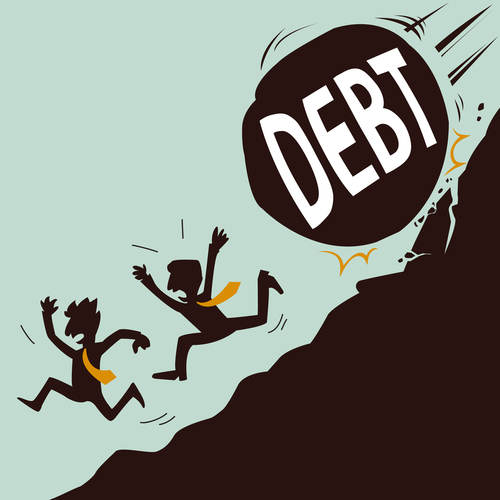This is the last article on the FINTEL series we started on Assets and Liabilities over the last four days.
In case you missed any of them, you can catch up here:
1. ASSETS AND LIABILITIES: What is Assets?
2. ASSETS AND LIABILITIES: Classes of Assets
3. ASSETS AND LIABILITIES: What You Need to Know About Liability 1/2
4. ASSETS AND LIABILITIES: What You Need to Know About Liability 2/2
Before we delve into the details of today’s topic, let us understand what DEBT really is:
Debt is an amount of money borrowed by one party from another by corporations and individuals as a method of making large purchases that they could not afford under normal circumstances.
A debt arrangement gives the borrowing party permission to borrow money under the condition that it is to be paid back at a later date, usually with interest.
The Interest is used as a way to ensure that the lender is compensated for taking on the risk of the loan while also encouraging the borrower to repay the loan quickly in order to limit his total interest expense. (Investopedia)
The most common examples of debt are bank loans, auto loans, mortgage, borrowed funds, etc.
As I mentioned earlier, there are good debts and there are bad debts.
Good Debt is the type that allows you to accumulate assets that will increase in value either by capital gains it by generating CashFlow. You can use the income derived from the asset to repay the debt.
Bad Debt is the type that buys goods, services or assets that have no potential to generate any income and/or depreciates in value. There is no income from the asset to pay back the debt. Examples are credit card debts, car loans, personal loans, etc
While the former can be used to create Wealth, the latter is a poverty trap you should avoid at all cost. It is also the real definition of “Liability”.
Let me explain… ✍️?✍️
Simply put, good debt is one that uses a principle called leverage to finance an investment.
Leverage can be defined as the use of borrowed funds with a contractually determined return to increase the ability of a business to invest and earn an expected higher return, but usually at high risk.
Rich people are known to leverage on what is called OPM – Other People’s Money in other to create wealth.
Yes, they do this legally. ?
There’s is something called Fractional Reserve Banking ratio which the bank uses to give out loans.
For example, if you put N1,000 in the bank, and the FRR is 1:12, then your local bank is permitted to create money out of thin air and lend out up to N12,000 to Investors to use in creating wealth.
Therefore, if a developer takes a bank loan to build a Real Estate property, he is essentially going into debt (good debt of course) because he has to pay back the loan with an interest.
But the good side of good debt is that, if he has enough Financial Intelligence, he can so arrange that the interest he is supposed to pay back to the bank is made NOT out of his own pocket but from Other People’s Money.
How? ?
It is possible that the rent he collects from his tenants are enough to cover his monthly interest payments to the bank.
At the same time, he will still have enough money and to spare going into his bank account from these rents.
As you can see…..
Without spending a dime of his own money, he will be accomplishing two things simultaneously:
1. Paying back the interest on his loan (good debt) to the bank, and
2. Generating endless CashFlow from his Investment – which will continue even after he has paid off the loan.
Are you getting the picture? ??
Does it look like magic?
Hahahaha. ??
I believe with this new knowledge, you will not look at debts with the same mindset anymore.
To learn more about the difference between bad (consumer) and good (investment) debt, read up this article and this one.
*****************************************
That brings us to the end of the FINTEL series on ASSETS AND LIABILITIES.
I want to believe you have learnt a lot.
I also want to believe that you better understand how Assets and Liabilities could affect your business and personal finance and how you can Leverage Debt to create wealth.
If so, take a few moments to COMMENT below the lessons you’ve learnt so far.
Also if you have any question, don’t hesitate to ask.

Pingback: ASSET AND LIABILITY: What You Need to Know About Liability 2/2 - FINTEL Coach
Wow!
Really a good and insightful series.
Thanks for these, Coach.✊
Thanks for reading